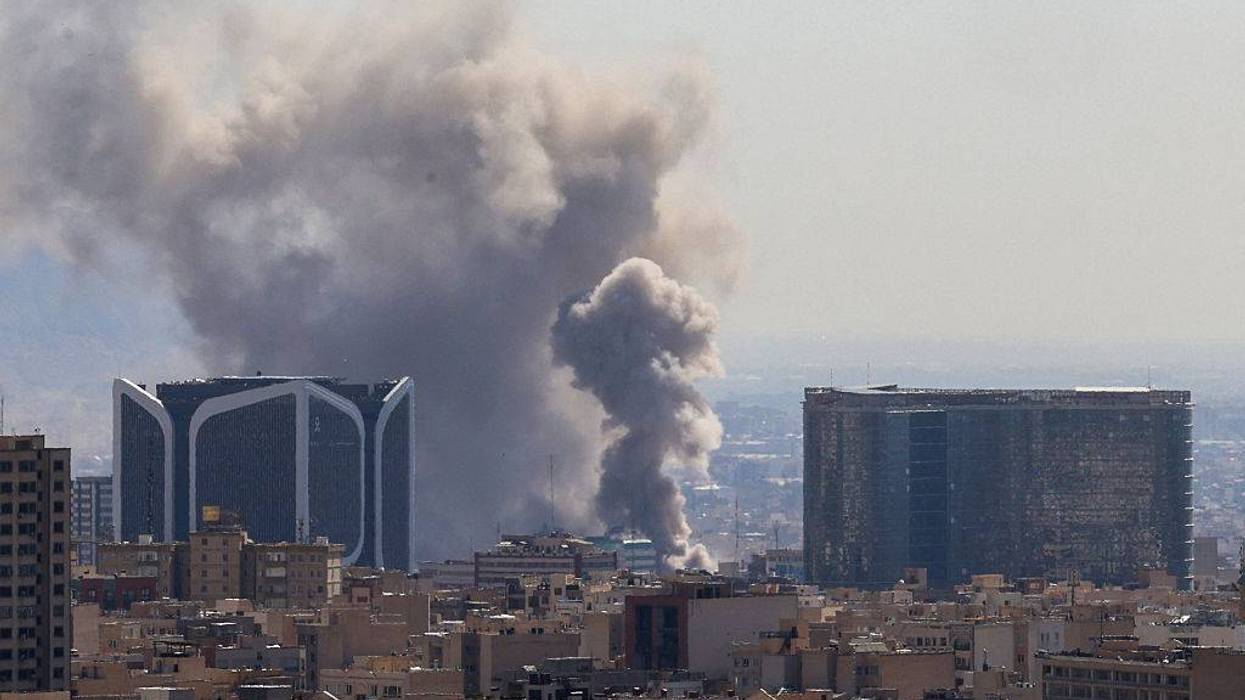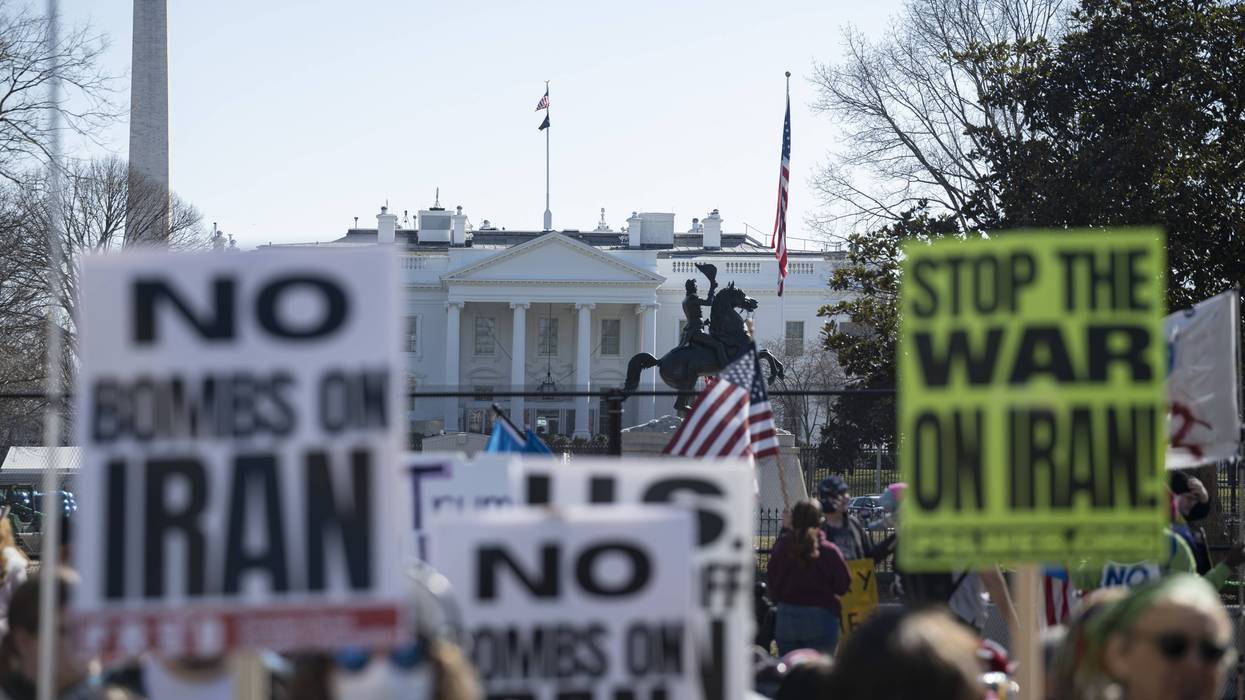February, 01 2011, 10:10am EDT

Papua New Guinea: Serious Abuses at Barrick Gold Mine
Systemic Failures Underscore Need for Canadian Government Regulation
TORONTO
Private security personnel employed at a gold mine in Papua New
Guinea have been implicated in alleged gang rapes and other violent
abuses, Human Rights Watch said in a report released today. The Porgera
mine has produced billions of dollars of gold in its twenty years of
operation, and is operated and 95 percent owned by Barrick Gold, a
Canadian company that is the world's largest gold producer.
The 94-page report, "Gold's Costly Dividend: Human Rights Impacts of Papua New Guinea's Porgera Gold Mine,"
identifies systemic failures on the part of Toronto-based Barrick Gold
that kept the company from recognizing the risk of abuses, and
responding to allegations that abuses had occurred. The report examines
the impact of Canada's failure to regulate the overseas activities of
its companies and also calls on Barrick to address environmental and
health concerns around the mine with greater transparency.
"We interviewed women who described brutal gang rapes by security
guards at Barrick's mine," said Chris Albin-Lackey, senior business and
human rights researcher at Human Rights Watch. "The company should have
acted long before Human Rights Watch conducted its research and prompted
them into action".
Human Rights Watch said that in response to its investigation,
Barrick has taken meaningful steps to investigate past abuses and make
it less likely for similar abuses to occur in future.
Most of the world's mining and exploration companies are based in
Canada. But Canada's government has not exercised meaningful oversight
or regulation of the overseas operations of Canadian companies, Human
Rights Watch said. Bill C-300, a modest but important effort to impose
greater government oversight, was defeated in Canada's House of Commons
in October 2010. Barrick had lobbied vigorously against the measure.
"Canada's government is asleep at the wheel," Albin-Lackey said. "And
if Barrick wants to hold itself out as a responsible corporate citizen,
it should support meaningful government oversight and regulation of
Canadian companies."
Papua New Guinea's sprawling Porgera gold mine has produced more than
16 million ounces of gold since opening in 1990 - an amount that would
be worth more than US$20 billion at today's prices. In 2010, Barrick's
worldwide operations were on track to produce more than 7.5 million
ounces of gold, an amount worth more than $9.7 billion at current
prices.
Papua New Guinea has an abundance of natural resources, but poor
governance and corruption have prevented this wealth from benefitting
ordinary citizens. The government has failed to bring economic
opportunity or deliver basic government services to Porgera, and the
region is mired in poverty and violence.
Barrick maintains a private security force of nearly 450 personnel at
Porgera. The mine must cope with extraordinary security challenges,
including violent raids by groups of illegal miners. But Human Rights
Watch research documents opportunistic, violent abuses allegedly
committed by some security force members that are in no way a reaction
to these threats.
Every day, hundreds of people try to eke out a living by scouring the
waste rock dumps around the mine for minute traces of gold. In contrast
to the participants in violent raids that the mine confronts on a
regular basis, these miners are for the most part engaged in an entirely
nonviolent - albeit unauthorized - practice. They face arrest by
company security officers if they are caught on the waste dumps.
Human Rights Watch investigated six alleged incidents of gang rape by
company security personnel. In each case, women were allegedly raped
after being captured by company security personnel on the waste dumps.
The women interviewed by Human Rights Watch described scenes of extreme
violence. One described being gang raped by six security personnel after
one of her assailants kicked her in the face and shattered her teeth.
Human Rights Watch also documented cases of people who alleged that they
were beaten or otherwise mistreated by guards who apprehended them on
the waste dumps.
None of the women interviewed by Human Rights Watch said they had
reported the alleged rapes to the local authorities or to the company.
Some said their assailants had told them they would be arrested if they
tried to complain. Compounding matters, Barrick did not have any safe
channels of communication that community members could use to report
abuses.
Barrick has responded with appropriate vigor to the allegations
brought forward by Human Rights Watch. The company opened a major
internal investigation, facilitated a criminal investigation by the
Papua New Guinea police, and made a commitment to take steps that could
strengthen oversight and accountability for the security force at
Porgera.
The alleged gang rapes appear to be part of a wider pattern, Human
Rights Watch said. The company and police investigations that followed
the Human Rights Watch disclosures have uncovered other cases of alleged
sexual violence.
In a public statement, Barrick called the results of its internal
investigation "disturbing" and announced the termination of several
security personnel for involvement in, or failure to report, alleged
incidents of sexual violence. Police arrested three current and former
Porgera Joint Venture employees in January, 2011. Two were charged with
rape and the third with inflicting grievous bodily harm.
A January 17 police statement predicted that more charges were likely
to flow from their investigation and said that the arrests should serve
as a warning that serious abuses will not be tolerated. That message is
important but it will take work to convince many people to believe it,
Human Rights Watch said.
Members of the Papua New Guinea police force are regularly implicated
in incidents of torture and rape, and the force's abusive reputation
makes the public reluctant to turn to it for help. If the government
wants to combat impunity for rape and other serious crimes, it will have
to start by ensuring that the police themselves are held accountable
for their conduct, Human Rights Watch said.
Human Rights Watch's research also examines concerns about the health
and environmental impacts of the Porgera mine. The mine dumps 16,000
tons of liquid waste into the nearby Porgera River every day. This
controversial practice is out of line with current industry standards,
and critics worry that it could pose health risks to communities far
downstream.
Human Rights Watch called on Barrick to publish several specific
sources of relevant data to allow for independent evaluation of the
company's claims. The company has now agreed to make public its annual
environmental reports for the first time. This is a good first step,
Human Rights Watch said.
Human Rights Watch also called for the Papua New Guinea government
and international donors to facilitate a public health survey of
possible mercury poisoning around Porgera. Impoverished small-scale and
illegal miners in the area regularly process gold ore by combining it
with mercury and then burning the combined materials over an open flame.
This is an extremely dangerous practice and one that local medical
professionals believe may have given rise to an untreated epidemic of
mercury poisoning in local communities.
Human Rights Watch is one of the world's leading independent organizations dedicated to defending and protecting human rights. By focusing international attention where human rights are violated, we give voice to the oppressed and hold oppressors accountable for their crimes. Our rigorous, objective investigations and strategic, targeted advocacy build intense pressure for action and raise the cost of human rights abuse. For 30 years, Human Rights Watch has worked tenaciously to lay the legal and moral groundwork for deep-rooted change and has fought to bring greater justice and security to people around the world.
LATEST NEWS
Trump's Unprovoked War on Iran Triggers 10% Spike in Global Oil Prices
"When global energy security can be upended by a single flashpoint, it shows how unstable and risky our dependence on oil and gas is," said one critic.
Mar 02, 2026
President Donald Trump's unprovoked, unconstitutional, and politically unpopular war against Iran is about to cause pains for Americans at the gas pump.
CNBC reported on Monday that Brent crude oil prices surged by 9.3% to a 52-week high of $79.40 per barrel, while US West Texas Intermediate crude oil prices spike by 9% to $73.10 per barrel.
This spike in oil prices is projected to directly lead to an increase in gas prices in the coming days.
Petroleum industry analyst Patrick De Haan noted in a Monday update on his Substack page that gas prices in the US had already risen by roughly six cents in the last week, and that war with Iran would drive these prices higher.
"Developments surrounding Iran—particularly any threat to regional production or shipping flows—are likely to remain the dominant driver of oil prices," wrote De Haan, "and could keep crude elevated or push it higher if tensions intensify further."
A Sunday research note from Wells Fargo cited by CNBC drew attention to the importance of the Strait of Hormuz, which the Iranian government closed off over the week and which is used to transport roughly 20% of the global supplies of petroleum and liquified natural gas.
According to Wells Fargo, a "prolonged" closure of the strait would result in "an oil shock to $100+ per barrel," which it described as the "worst-case scenario" for global stock markets.
In addition to closing off the Strait of Hormuz, Iran has also been launching attacks on other nations' energy infrastructure.
According to a report from Bloomberg, Saudi Arabia’s largest oil refinery at Ras Tanura had to cease operations on Monday after being struck in a drone attack.
"An attack on major energy infrastructure is a nightmare scenario for global markets," noted Bloomberg, "with maritime traffic through the crucial Strait of Hormuz all but halting."
Olivia Langhoff, managing director at climate justice organization 350.org said that the global economic disruptions being caused by the Iran war shows the folly of continuing to rely on fossil fuels for energy needs.
"When global energy security can be upended by a single flashpoint, it shows how unstable and risky our dependence on oil and gas is," Langhoff said. "Renewable energy provides homegrown power that remains secure and affordable regardless of geopolitical shocks."
Langhoff's comments were echoed by Mads Christensen, executive director of Greenpeace International.
"As long as our world runs on oil and gas, our peace, security and our pockets will always be at the mercy of geopolitics," Christensen explained. "Increasing output may temporarily ease price pressures, but it does not address the structural vulnerability at the heart of this recurring crisis: the world’s continued dependence on fossil fuels."
The increase in gas prices comes at a time when US voters have been expressing widespread dissatisfaction with the economy under Trump, as polls show voters have been particularly anxious about the prices of groceries and utilities, among other essentials.
Keep ReadingShow Less
Only 25% of Americans Support Trump Attack on Iran: Poll
"If this goes on... this is going to become a political disaster," said one foreign policy expert.
Mar 02, 2026
President Donald Trump's war in Iran is extraordinarily unpopular, according to a poll conducted shortly after the US and Israel carried out massive strikes on the country Saturday.
The survey, conducted by Reuters/Ipsos, found that just 27% of voters approved of the strikes, which have killed at least 555 Iranians as of Monday morning and resulted in retaliation from Iran that has killed at least four US service members, with more casualties expected according to a spokesperson for the US Joint Chiefs of Staff.
Meanwhile, 43% of respondents disapproved of the military action, while 29% said they were not sure.
A majority of Republicans said they approved of the strikes, with 55% expressing support. Still, 13% disapproved, and a noteworthy 31% said they were unsure.
Approval is dismal with nearly everyone else. Only 19% of independents expressed support compared to 44% who disapproved. And though Democratic leaders in Congress have done little to stand in the way of the strikes, their voters are overwhelmingly against them: 74% said they disapproved, while just 7% approved.
The poll reflects a wider skepticism of US military intervention, with 56% of respondents saying the president was too quick to deploy military force in recent months, including in Venezuela, Syria, and Nigeria.
Compared with previous US military interventions in the Middle East, such as the invasions of Iraq and Afghanistan, which—at least at their outset—enjoyed broad support from the American public following intense government efforts to drum up support, there has been little effort by the Trump administration to define the purpose of war with Iran.
Trump's justification for launching the war has shifted wildly since he began amassing troops in the region. Trump has most recently said the strikes were intended to stop an "imminent threat" from Iran; meanwhile, the Pentagon has told Congress there was no sign Iran was planning an attack unless the US did so first.
The president previously said his push for war was to prevent Iran from developing a nuclear weapon, an assertion at odds with his claim that his strikes in June "obliterated" the country's nuclear capabilities.
Trita Parsi, executive vice president of the Quincy Institute for Responsible Statecraft, told Al Jazeera that Trump's shifting explanations reek of "desperation."
"It's very clear that Trump has a tremendous difficulty finding a justification for this war of choice that he's embarked on," he said. "The reality is that if this goes on for another week or two, this is going to become a political disaster."
"So now he's suddenly, desperately, using all kinds of justifications: Liberating the Iranian people, Iran is fighting against civilization," Parsi said. "If he actually had a case, he would have stuck to that point and made it clearly. But he doesn't have one."
Keep ReadingShow Less
Call Grows to Impeach Trump, 'The Most Dangerous Man on the Planet'
"Trump’s illegal war on Iran and the rule of law," said one pair of campaigners, "establish an intolerable pattern of egregious abuses of power, directly threatening our constitutional order, our safety, and our way of life."
Mar 02, 2026
After the unprovoked bombing of Iran over the weekend by the United States and Israel—strikes that included the unlawful assassination of Iranian Supreme Leader Ali Hosseini Khamenei—the call for US President Donald Trump to be impeached and removed from office has grown as the straightest path to hold the US leader to account for the attacks which policy and human rights experts have condemned as a serious war crime.
With a regional war in the Middle East that was already boiling from Gaza to Lebanon and from Syria to Yemen now exploding in the wake of the US-Israeli attacks on Iran, Globe and Mail columnist Debra Thompson on Sunday called Trump "the most dangerous man on the planet."
"Rather than ending wars," Thompson notes, "Trump has initiated military action eight times, carrying out attacks in seven countries (Syria, Iraq, Iran, Nigeria, Yemen, Somalia, and Venezuela) in 2025." Such a pattern of violence and warmongering should make clear that failure to restrain Trump has only emboldened him.
"The recurring danger in this latest presidential aggression is that there are no guardrails, no constraints, and no post-hoc justification," writes Thomson, "other than that Mr. Trump is the President of the United States and can do whatever he wants."
But American presidents cannot simply do whatever they want. According to a Reuters/Ipsos poll out Sunday, less than 25% support the president's aggression against Iran. In the first wave of the US military attack, an Iranian school for girls was bombed, killing over 108 civilians, mostly children.
While some congressional lawmakers are pushing for a vote this week on a War Powers Resolution to curtail US military operations against Iran, others are demanding more robust action from Congress to bring Trump's war-making to an end.
"Under Article I, Section 8 of the U.S. Constitution, only Congress has the power to declare war, as well as to raise and support armies, provide and maintain a navy, and fund and regulate the military," declared novelist and political activists Stephen King on Saturday. "Impeach the SOB."
Mike Hersh and Alan Minsky, respectively the communications director and executive director of the Progressive Democrats of America, argued in a Sunday op-ed for Common Dreams that "Trump's illegal, unconstitutional war on Iran is not only a moral and humanitarian disaster, but also a profound constitutional crisis."
According to Hersh and Minsky:
Trump’s illegal war on Iran and the rule of law establish an intolerable pattern of egregious abuses of power, directly threatening our constitutional order, our safety, and our way of life. These intertwined crises cry out for an immediate, decisive response by the Congress and the US public.
Therefore, PDA demands that all members of Congress, Democrats, Republicans, and Independents alike, uphold their oath of office to defend our constitutional republic. The Constitution offers one and only one remedy when President a repeatedly breaks the law and arrogantly refuses to abide by the limits on the power clearly laid out in the Constitution. That remedy is impeachment, followed by removal from office.
Matt Duss, executive vice president for the Center for International Policy, said that US lawmakers, as well as the American people they represent, "must also be ready to hold the president and his administration accountable for this breach of US and international law."
"The failure to hold past presidents liable for war crimes and related violations of our own laws has helped lead to this dangerous moment, with a seemingly unrestrained president endangering millions of lives with impunity," warned Duss. "The forever wars and the imperial presidency must finally come to an end.”
Keep ReadingShow Less
Most Popular


